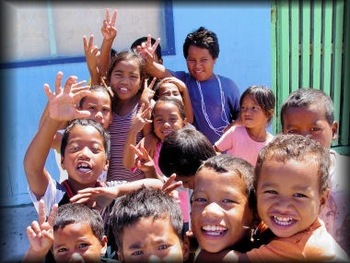RMI Education and Skills Strengthening Project
The Government of the Republic of Marshall Islands has received funding from the World Bank for the Education and Skills Strengthening Project (ESSP) expense. It means to use part of the earnings for seeking advice from services.
The consulting services ("the Services") will help the Project Manager and the RMI National Training Council in executing the World Bank-funded job efficiently.
The assignment will focus on supporting the Project Implementation Unit (PIU) in developing a framework for Recognition of Prior Learning (RPL) for TVET, focused on helping the College of the Marshall Islands and the RMI National Training Council evaluate and boost the skills of employees through recognized college accreditation.

The detailed Terms of Reference (TOR) for the assignment are indicated in the connected Terms of Reference (ToR).
The National Training Council now invites eligible individuals ("Consultants") to indicate their interest in providing the Services. Intrigued Consultants must offer info showing that they have the required qualifications and relevant experience to carry out the Services (attach a Cover Letter of no greater than four (4) pages dealing with the necessary experience and qualification requirements curriculum vitae with a description of experience in comparable tasks, similar conditions, and so on). Firms' staff might reveal interest through the employing company for the task. In such a scenario, only the experience and credentials of people will be thought about in the selection process. The requirements for choosing the Consultant are: A.
Mandatory Qualifications and Experience Master's degree in education, training
, management, or a related field. Minimum of 5-10 years of experience working in TVET System. Curriculum Design and Systems.

Possess 2-5 years' experience creating and
carrying out RPL. frameworks, policies, and treatments. A sample of previous work will be needed as proof of previous experience. Exceptional communication, training, and assistance
abilities. Experience with dealing with diverse stakeholders, consisting of federal government. companies, TVET organizations, employers, and students in the Pacific. B. Desired Qualifications and Experience Ability to deal sensitively in a multicultural
environment and build effective team relationships with customers and appropriate stakeholders. The attention of interested Consultants (including firms )is drawn to paragraphs 3.14, 3.16 and 3.17 of the World Bank's"
Procurement Regulations for IPF Borrowers "July 2016 modified November 2020" Procurement Regulations ", stating the World Bank's policy on conflict of interest. Further information can be acquired at the address listed below during workplace hours, 0900 to 1700 local time. Expressions of interest need to be
provided in a written kind to the address listed below (in person or by e-mail )by 5:00 pm, 23rd December 2024.
The subject line ought to state:"National Training Council Strategic Plan Consultant -complete name of the prospect". Julius Lucky Director National Training [email protected]:Phone: 692 625-4521 Empowering Community Champions for Sustainable Development in rmi national training council Gender Equality, Climate Resilience and Water Safety Training Majuro,
Republic of the Marshall Islands: The 4th
Women and Youth Training for
Gender Equality, Climate Change, Disaster Risk Reduction and Water Safety Management has recently happened at the University of the South Pacific's school in Majuro, the Republic of the Marshall Islands(RMI ). This vital training was organized by the United Nations Development Programme( UNDP )Pacific Office through the Addressing Climate Vulnerability in the Water Sector(ACWA) task. The week-long capacity-building training intended to empower women and youth with the understanding and practices needed for climate-resilient water security management in the
Republic of the Marshall Islands(RMI ). This training enhances a dedication to boosting RMI's water security and neighborhood durability versus environment change effects, especially ladies
and youth, guaranteeing that no one is left behind. The training welcomed individuals from all 24 atolls and featured resource speakers from government companies, non-governmental organizations, and global development partners from the rmi national training council Environmental Protection Authority, Climate Change Directorate, Office of the Chief Secretary, Ministry of Culture and Internal Affairs, National Disaster Management Office, Women United Together Marshall Islands, RMI Human Trafficking Task Force, Waan Aelõñ in Majel, Jo-Jikum, and the International Organization for Migration. In her opening remarks, Secretary for the Ministry of Culture and Internal Affairs, Brenda Alik, highlighted the significance of cumulative action in building a climate-resilient nation."It is our duty to come together and work together. As we face the difficulties postured by climate modification, comprehending its effect on our water resources is important for enhancing the well-being of neighborhoods throughout the Marshall Islands,"she said.
rmi national training council Environmental Protection Authority General Manager Moriana Philip highlighted in her speech the vital function of females and youth in attending to climate-related difficulties."This workshop joins us from numerous communities to address the pressing issues we face today, including climate-related difficulties, especially on our water resources."We wish to emphasize the essential role of ladies and youth in this job as your participation is instrumental to its success and beyond, "she said.
The very first day of the workshop covered important concerns connected to gender equality, human rights, and public health within the Marshall Islands. It included discussions on gender equality and mainstreaming, focusing on the impacts of climate change on water security and the disproportionate impacts on vulnerable groups. The significance of incorporating gender equality and social inclusion into all task aspects was likewise gone over. Human rights and human trafficking were taken on, worrying the requirement for thorough security of vulnerable populations
throughout emergencies. In addition, the workshop attended to gender-based violence, highlighting the numerous types that can arise in disaster scenarios, such as domestic violence and sexual browbeating. The program concluded with a concentrate on sanitation and hygiene and their crucial role in health, livelihoods, school presence, dignity, and structure resistant communities. ACWA Project Manager Koji Kumamaru expressed his thankfulness to all individuals

, emphasizing the significance of their contributions to their communities."Women and youth are essential to the success of the ACWA task. More significantly, you are the champs and future leaders who will go back to your communities to empower others,"he said. Throughout the workshop, participants visited Rongrong Island and examined the 15,000-gallon Flatpack Modular water tank installed at the Rongrong High School Boys Dormitory as part of the ACWA project. The installation is an essential element of the task, matched by support from Australia
's Department of Foreign Affairs and Trade. The check out acted as a valuable direct experience of the positive effect of the ACWA task on the community and its
water resources. Marie Naisher from Jabat Island revealed her gratitude for the opportunity to sign up with the workshop and explained her desire to be part of the job when it reaches Jabat.
"This was my first time taking part in such training, and I discovered so much from the visitor speakers, group activities, and the site check out. I now comprehend the value of clean water and how to sanitize it. I'm thrilled about the ACWA project concerning Jabat and prepared to help when it arrives,"she stated. Don Kobney, an ACWA site planner from Santo, Kwajalein, likewise shared his enjoyment."The workshop and site see improved my self-confidence and understanding of the water tank installation.
Seeing the 15,000-gallon flatpack modular water tank firsthand gave me a clear understanding of the system, and I'm anticipating sharing this understanding with my community, "he stated. By the workshop's end, participants were much better equipped to comprehend climate modification and its local impacts, drive adjustment and mitigation efforts, especially in water security, and utilize brand-new resources to affect their communities positively. ACWA is enabled thanks to the assistance of the Green Climate
Fund, with the job co-financed by the Government of the Republic of the Marshall Islands
. The Marshall Islands: Skills Training and Vocational Education Project Examines the efficiency of the project and highlights lessons. Supplies inputs to 2 more comprehensive assessments- the regional examination of ADB support for the Pacific and the special assessment study on Millennium Development Goals. The low educational achievement and shortage of Marshallese skilled workers were largely due to the poor quality of standard education, lack of access to education in the external islands, and weaknesses in skills training and the occupation and technical education system.
These supported an economy marked by high unemployment because of constrained private sector development and government downsizing. Unemployment was specifically high amongst the youth and women in the external islands. Suitable local skilled personnel for existing task vacancies
were unavailable, thus the importation of appropriately experienced foreign workers. Thus, there was an inequality between available tasks and skills of the Marshallese labour force. These conditions provided the effort for the Government
of the Marshall Islands to focus on technical and employment education training reforms. In 2000, ADB approved a loan for $9.1 million to improve skills training to supply trained employees required for sustained economic and social development. This was to be achieved through an integrated national abilities training system. The job consisted of 4 elements: development of a career awareness program, abilities training improvement, enhanced skills training chances for women and youth, and institutional conditioning. The anticipated result was increased income-generating chances and work for trainees, particularly women and youth in the external islands. In general, the project was rated unsuccessful. Limited progress was achieved in making the job responsive to the requirements of its recipients and private-sector companies. The long-standing weak point of bad numeracy and literacy proficiencies
among public elementary and secondary school graduates and dropouts entering college or going to voc-tech education could be partly credited to the poor quality of fundamental education. The project was supply-driven and could not establish a strong linkage with private sector requirements or align its activities with the requirements of the labour market. The status of the technical and vocational education training system has remained fundamentally the exact same after job conclusion. The research study put forward that ADB might motivate the Government of the Marshall Islands, through assessment and policy dialogue, to follow through on the federal government's
commitment to developing a committed labour info system to connect technical and trade education training program offerings with industry demand. Although the job set up a labour market details system, in the lack of internal staff ability at the National Training Council, it was not totally operational.







